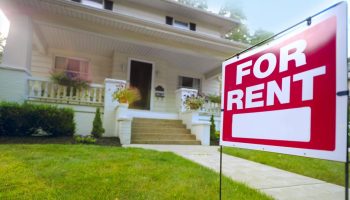When it comes to keeping your home cool and comfortable during the hot summer months, choosing the right air conditioning solution is crucial. With several options available, it can be challenging to determine which system best suits your needs. Let’s explore different home air conditioning solutions, their benefits, and factors to consider when making your choice.
1. Central Air Conditioning Systems
Central air conditioning systems are one of the most common and efficient ways to cool an entire home. These systems use a network of ducts to distribute cooled air throughout the entire house.
Benefits
Consistent Temperature: Provides even cooling throughout the home.
Improved Air Quality: Filters and dehumidifies the air.
Quiet Operation: The main components are located outside the living space.
Considerations
Installation Cost: Can be expensive to install, especially if your home doesn’t already have ductwork.
Maintenance: Requires regular maintenance to ensure efficiency and longevity.
2. Ductless Mini-Split Systems
Ductless mini-split systems consist of an outdoor unit and one or more indoor units. They are ideal for homes without existing ductwork and offer a flexible cooling solution.
Benefits
Zoned Cooling: Allows you to cool specific areas of your home.
Energy Efficiency: Typically more energy-efficient than central systems.
Easy Installation: Less invasive to install compared to central air systems.
Considerations
Initial Cost: Can be pricey, but the investment pays off with energy savings.
Aesthetics: Indoor units are visible and may not fit with your interior decor.
3. Window Air Conditioners
Window air conditioners are a popular choice for cooling single rooms. They are installed in a window or a custom opening in a wall.
Benefits
Affordability: Generally cheaper than other air conditioning systems.
Ease of Installation: Simple to install and remove.
Portability: Can be moved from one room to another as needed.
Considerations
Limited Coverage: Only cools one room at a time.
Noise: Can be noisy compared to other systems.
Window Access: Takes up window space and may block views.
4. Heat Pumps
Heat pumps are gaining popularity because they serve dual functions, providing both heating and cooling solutions. Heat pumps can keep homes comfortable throughout the year. They can heat your home in the winter and cool it during summer, making them a versatile solution for all seasons. Most heat pump providers prepare mini-split ductless heat pumps for easy installation. An installation service like this heat pumps Halifax service provider offers brand new installation, repair, cleaning, and annual maintenance packages.
Benefits
Energy Efficiency: Highly efficient, especially geothermal heat pumps.
Year-Round Comfort: Provides both heating and cooling.
Environmentally Friendly: Uses less energy than traditional systems.
Considerations
Installation Cost: Geothermal heat pumps have high upfront costs but offer long-term savings.
Climate Suitability: Air-source heat pumps may be less efficient in extremely cold climates.
5. Portable Air Conditioners
Portable air conditioners are standalone units that can be moved from room to room. They come with an exhaust hose that must be vented through a window or a wall.
Benefits
Flexibility: This can be moved to where you need cooling the most.
No Permanent Installation: Ideal for renters or those who don’t want to modify their home.
Ease of Use: Simple to set up and use.
Considerations
Efficiency: Less efficient than any other system.
Noise: Can be quite noisy during operation.
Space: Takes up floor space.
6. Hybrid Air Conditioners
Hybrid air conditioners, also known as dual-fuel systems, combine a heat pump with a furnace. They switch between electricity and fossil fuels to optimize energy use based on the temperature.
Benefits
Energy Efficiency: Uses the most efficient fuel source for the current temperature.
Year-Round Comfort: Provides both heating and cooling.
Cost Savings: Can lower energy bills compared to traditional systems.
Considerations
Complexity: More complex system requiring professional installation and maintenance.
Initial Cost: Higher upfront cost but potential long-term savings.
Factors to Consider When Choosing an Air Conditioning Solution
Climate
Your local climate plays a significant role in determining the best cooling solution for your home. For example, evaporative coolers are ideal for dry climates, while central or ductless systems work well in humid areas.
Home Size and Layout
The size and layout of your home influence the type of air conditioning system you need. Larger homes may benefit from central air systems, while smaller or older homes without ductwork might find ductless mini-splits more suitable.
Budget
Consider both the initial installation cost and long-term operating costs. While some systems may be cheaper upfront, they could have higher energy costs over time.
Energy Efficiency
Energy-efficient systems can save you money on your utility bills and reduce your environmental footprint. Look for systems with high SEER (Seasonal Energy Efficiency Ratio) ratings.
Installation and Maintenance
Some systems require professional installation and regular maintenance to function correctly. Be sure to factor in these additional costs when making your decision.
Aesthetics
The appearance of the air conditioning units inside your home can affect your choice, especially if aesthetics are important to you. Ductless mini-splits and window units are more visible than central air vents.
Overall, choosing the right air conditioning solution for your home involves considering various factors such as your climate, home size, budget, and personal preferences. By understanding the benefits and limitations of each type of system, you can make an informed decision that will keep your home cool and comfortable all summer long.





